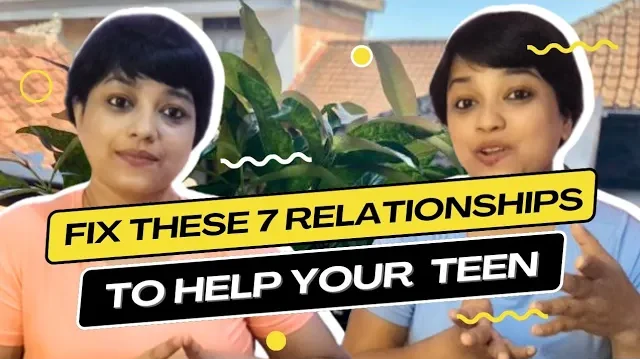Parents, do you often find yourself puzzled by the choices your teenager makes? Do you wonder how your own actions might be shaping their decisions? Are you searching for ways to better connect with your teen and understand what’s going on in their world? Did you know that parent-teenager relationship holds crucial significance for parents not just for personal growth but also for a teenager’s wellbeing? So, watch the video till the end, Like, Share, Subscribe to this channel. For those who are new, Hi, my name is Linda, and you’re watching MusterMynd.
Not many years ago, say 20-30 years ago, you were a teenager. Those days, psychological counselling was almost unheard of. People would follow their families, especially the ones with maximum financial stake in our lives. Maybe you got married before you were even mature enough to manage yourself well. Maybe you were asked to have a child as a norm when you were still clueless about your growth and future and how to manage your interpersonal relationships. Basically, whatever stressful condition your teenager is in today, could have been better but could-haves cannot make things work. So, here are the seven important relationships to think about to amend parent-teenager relationship for collective wellbeing of parents and teenagers.
- Your relationship with your partner: How you interact with your partner sets the blueprint for how your teen perceives relationships. If conflicts arise, do you handle them constructively? Showing respect, understanding, and love can guide your teen in developing healthy relationships in the future. If you’re constantly at odds with your partner, your teen may internalize that strife.
- Your relationship with your neighbors: Interactions with those in your immediate community demonstrate to your teenager the importance of social harmony and tolerance. If you gossip, show prejudice, or are confrontational, your teen may adopt these behaviors. On the contrary, displaying kindness and understanding can instill positive values.
- Your relationship with the world: How you engage with broader societal issues, politics, the environment, or global concerns offers your teenager insights into civic responsibility and empathy. Being open-minded, informed, and compassionate can encourage your teen to be a positive contributor to society.
- Your relationship with your teenager: Open communication is vital. While it’s essential to guide and advise, it’s equally crucial to listen, understand, and respect their perspectives. Your teen needs to know they can trust you with their feelings and concerns.
- Your relationship with members of the family: Family dynamics play a significant role in a teenager’s well-being. If there’s favoritism, constant bickering, or lack of support among family members, it can lead to feelings of isolation or insecurity in your teen. Strive for a balanced, supportive, and loving environment.
- Your relationship with yourself: Your self-worth, self-care habits, and personal growth have a ripple effect on your teenager. They observe your resilience, coping mechanisms, and how you handle stress or challenges. Demonstrating self-love and perseverance can empower your teen to do the same.
- Your relationship with your parents: The intergenerational bond has profound effects on family dynamics. How you treat, respect, or communicate with your parents can influence how your teen perceives elder relationships. If there are unresolved issues or tensions, it might be a good time to address them not just for your well-being but for the lessons it imparts to your teenager.
Parent-teenager relationship holds crucial significance for parents not just for personal growth but also for molding a teenager’s perception of interpersonal dynamics. Creating a positive and nurturing environment in all these relationships can significantly impact your teenager’s well-being and values. My aim is to help you save your money by providing you initial guidance in the space of psychology, psychiatry, neuroscience, and meds & therapy, but I am not a replacement for a licensed therapist. If these strategies are not yielding you the intended benefits, consult a professional. But do work on saving your relationship with your teenager. Like, Share, Subscribe to this channel for more videos like this. Check out other important topics I have already covered. Until next, take care.




